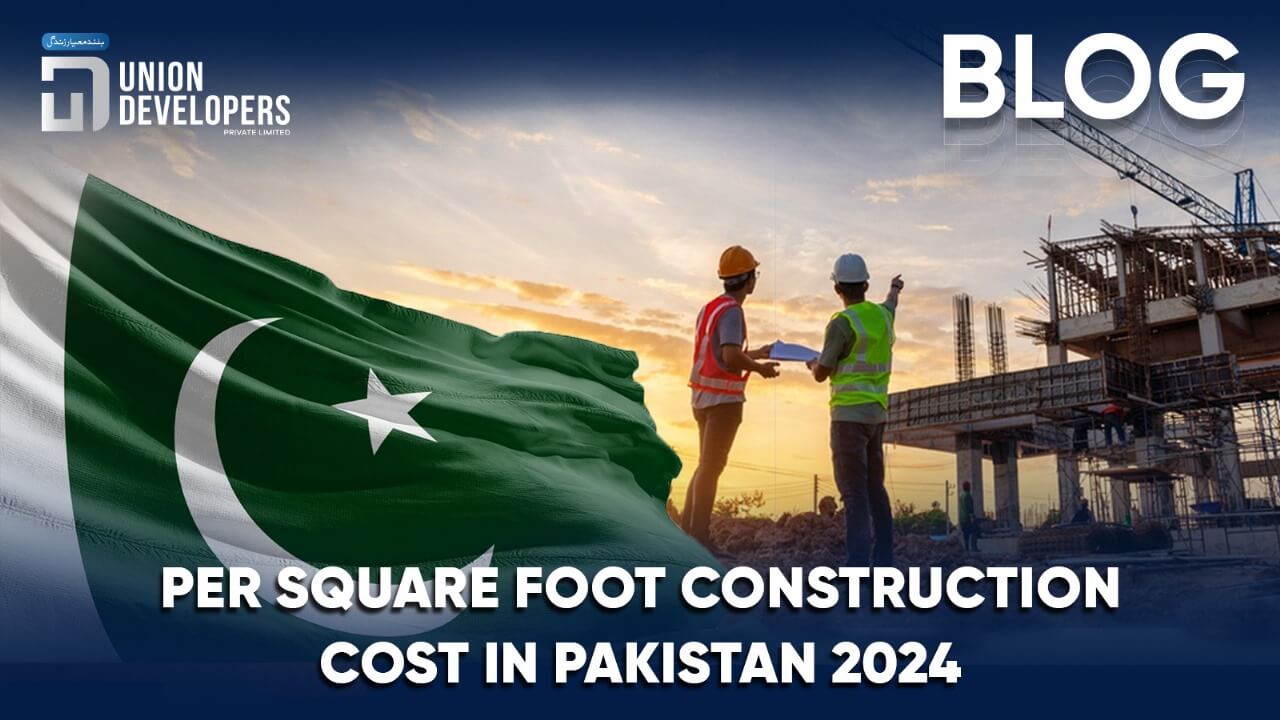Estimating construction cost, either it is for residential or commercial purpose is a difficult drill. However, while budgeting the cost of any construction project should be on high-priority at work list. Therefore, in this ever-evolving and fast-paced sector of real estate, it’s wise enough to know the per square foot construction cost in Pakistan 2024. Now let’s start from the beginning of finding the factors that influence construction costs to the bottom of what make a successful construction project.
Per Square Foot Construction Cost in Pakistan 2024
According to price index, the estimated per square foot construction cost in Pakistan in 2024 is between Rs. 250 to 380. However, it is important to note that this rate may vary depending on the location and design of the construction area. Additionally, the construction cost may change due to the depreciation of the Pakistani rupee.
How the Awareness about Construction Costs Effects Project Planning?
Development expenditures and construction cost contains different expenses, which include investor’s contribution, designing and construction permits etc. The most common practice of calculating the construction cost is per square foot, this will help while redesigning your construction project in terms of space, volume and floors.
Also Read: Top Construction Companies in Pakistan
Variables Affecting Construction Expenses
It is necessary to understand the main factors and expenses which are constantly affecting the construction cost.
Regional Influences on Construction Cost
Construction costs could fluctuate depending upon the city, region and land. Urban areas are typically have higher in cost as compare to rural areas, which are often characterized by disparities in demand, transportation overheads, labour rates, and structural expenditures. Urban centres typically incur heightened expenses attributable to these factors, in stark contrast to their countryside counterparts.
Understanding Building Requirements & Cost
When we start any construction project, whether for residential, commercial or industrial purposes: It is important to realize that each building comes with its own set of requirements and budgetary challenges. So therefore, from the design phase to material selection; every building requires tailored approaches to determine efficiency, sustainability and cost-effectiveness.
Understanding these factors for successful project planning and its execution in the diverse landscape of construction. Understanding these factors for successful project planning and execution in various construction environments.
Material Selection Matters
Be careful while choosing building materials, which affect the cost of the project, as these materials have different options from basic materials to high quality materials and each one of them carries its own effects on cost management, durability and aesthetics. Traditional choices can save money initially but can cost them later, keeping them around in the long run.
Conversely, investing in more expensive materials can cost more but generally results in better quality, longer life, less maintenance and overall a building life expectancy increases. Therefore, it is important to understand the upfront costs and long-term benefits.
Architectural challenges, ‘Balancing Vision & Value’
Complex and bespoke architectural design enhances the built environment through complexity and innovation. But this effort is not without great technology. Complex designs often require craftsmanship and specialized materials, increasing construction costs. The work of skilled craftsmen is the translation of complex architects’ visions into reality, and requires care and expertise.
In addition, the demand for unique products increases the financial burden, as rarity and exceptional product prices are often linked. Despite these challenges, consideration of economic implications allows investors to make smarter choices.
Craftsmanship Cost & Labour Rates
Skilled labour is a significant component of construction expenses, and wage rates may fluctuate depending on the region’s labour market conditions. They are among the most skilled workers in construction costs. Remuneration for such expertise can vary and is often influenced by the prevailing labour market dynamics in a given area. It varies and subject to change, this number reflects not only costs, but also the benefits of skilled labour to keeping them going forward at construction sites.
Understanding these variables is important for effective budgeting and resource allocation in construction efforts.
Infrastructure’s Impact on Construction Costs
Functionality of infrastructure, such as an example water, electricity and sewage plays an important role for the costs of development. On the other hand, such vital services are the means through which the whole project can also transmit the most needed services to support all construction activities: but this might not be possible in areas where there are limited access and outdated systems. Thereby creating an economic problem, people from private and public sector, the investors have to be ready to inject funds into the system so as to ensure reliability and compliance with regulations.
Cautiously planning towards the improvements and regular dialogue with the local municipalities helps in the search of the way of overcoming these challenges. Additionally, the implementation of the project will be less stressful. Infrastructure and utilities will grab attention of investors and become costly in the end. Hence; therefore, such things should be planned beforehand so the project is controllable in future.





